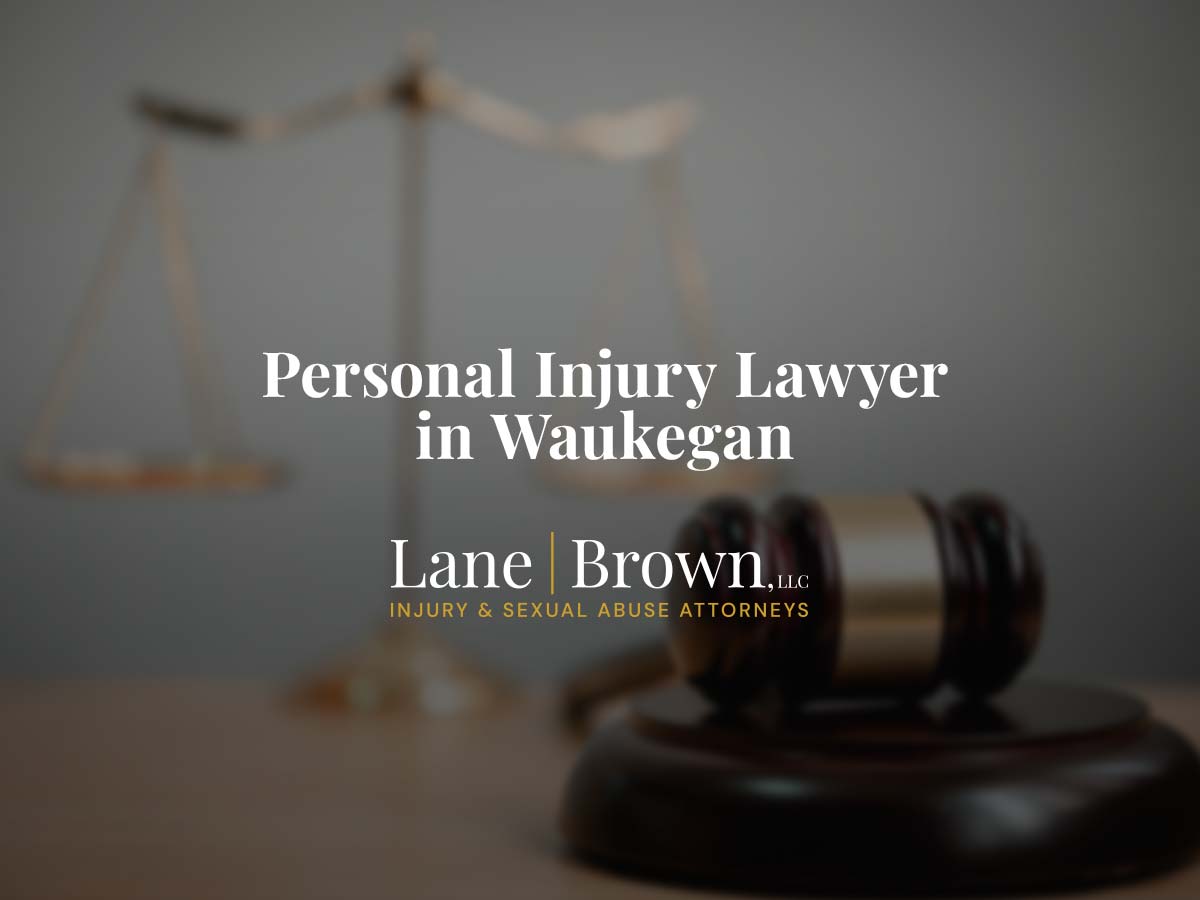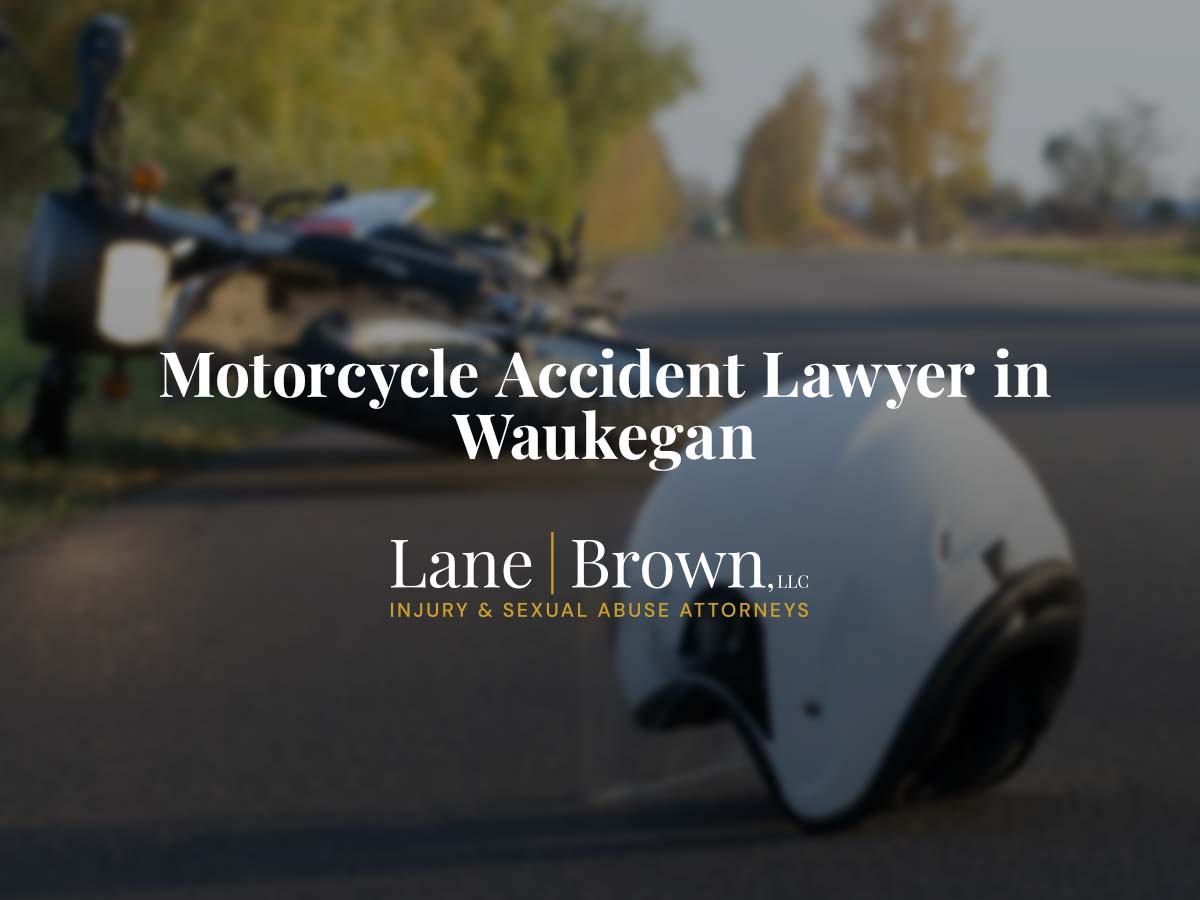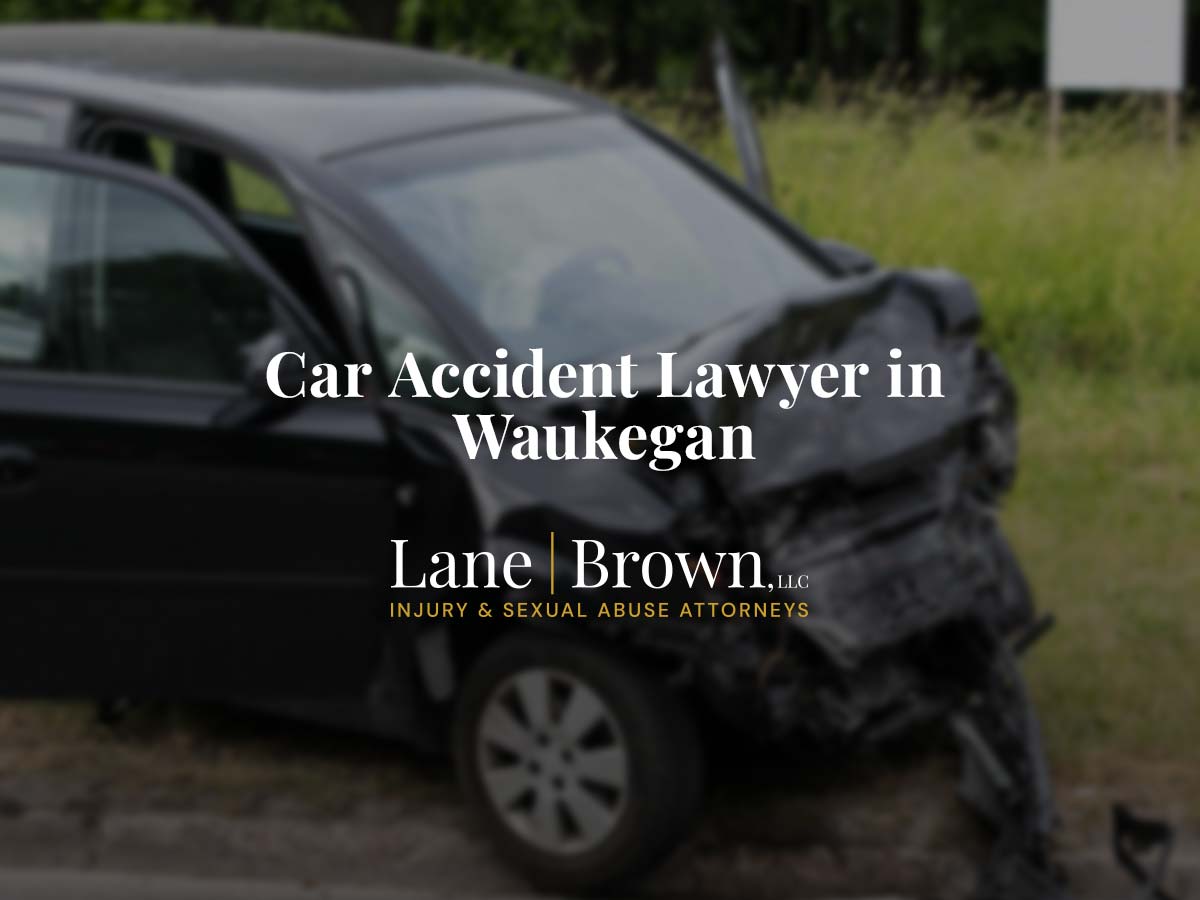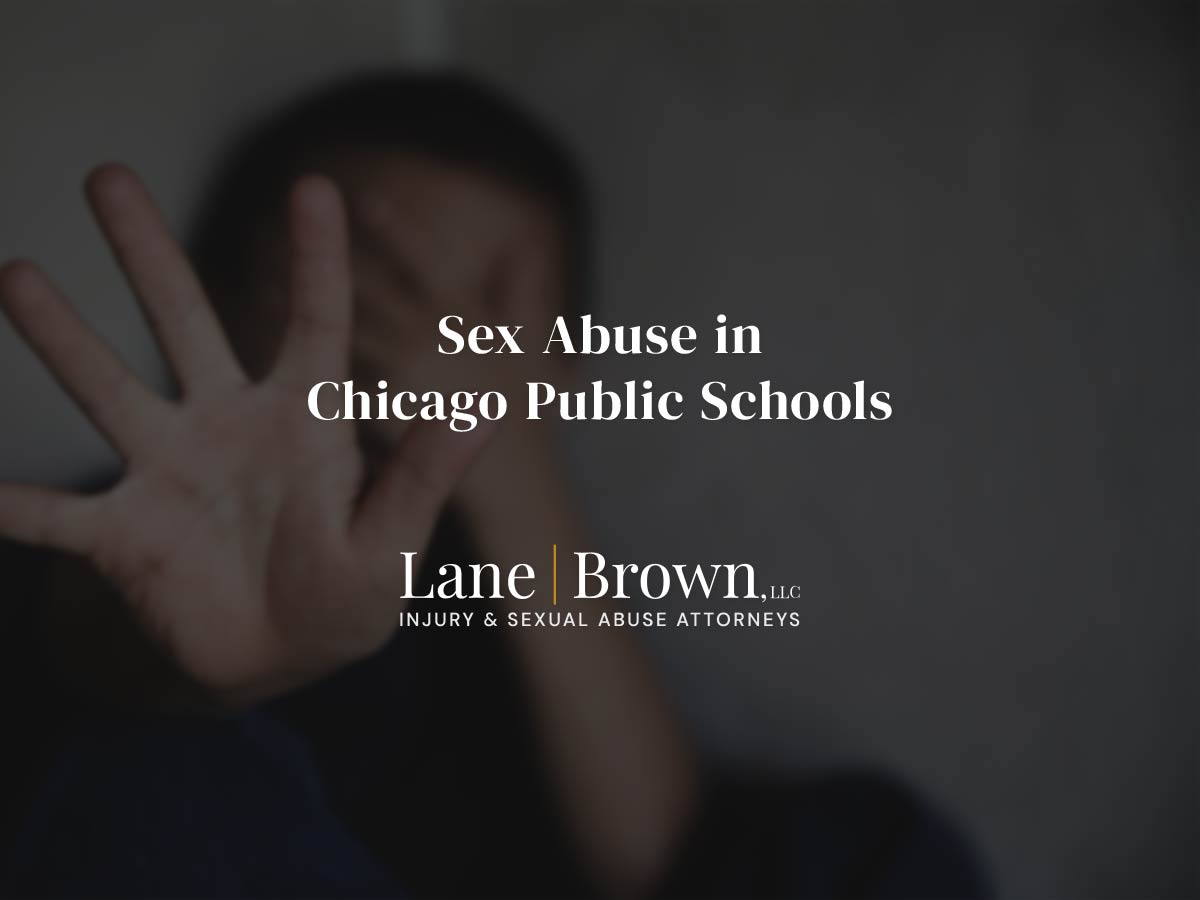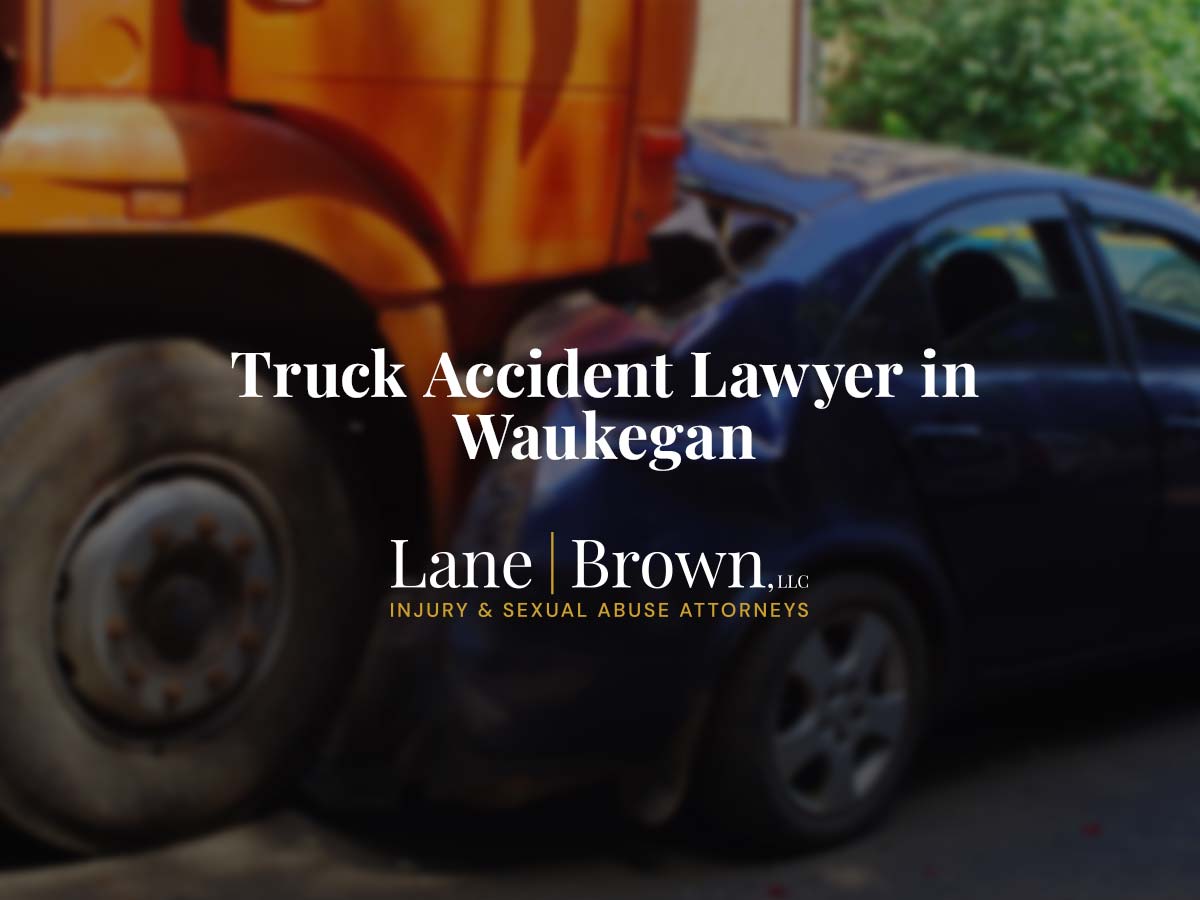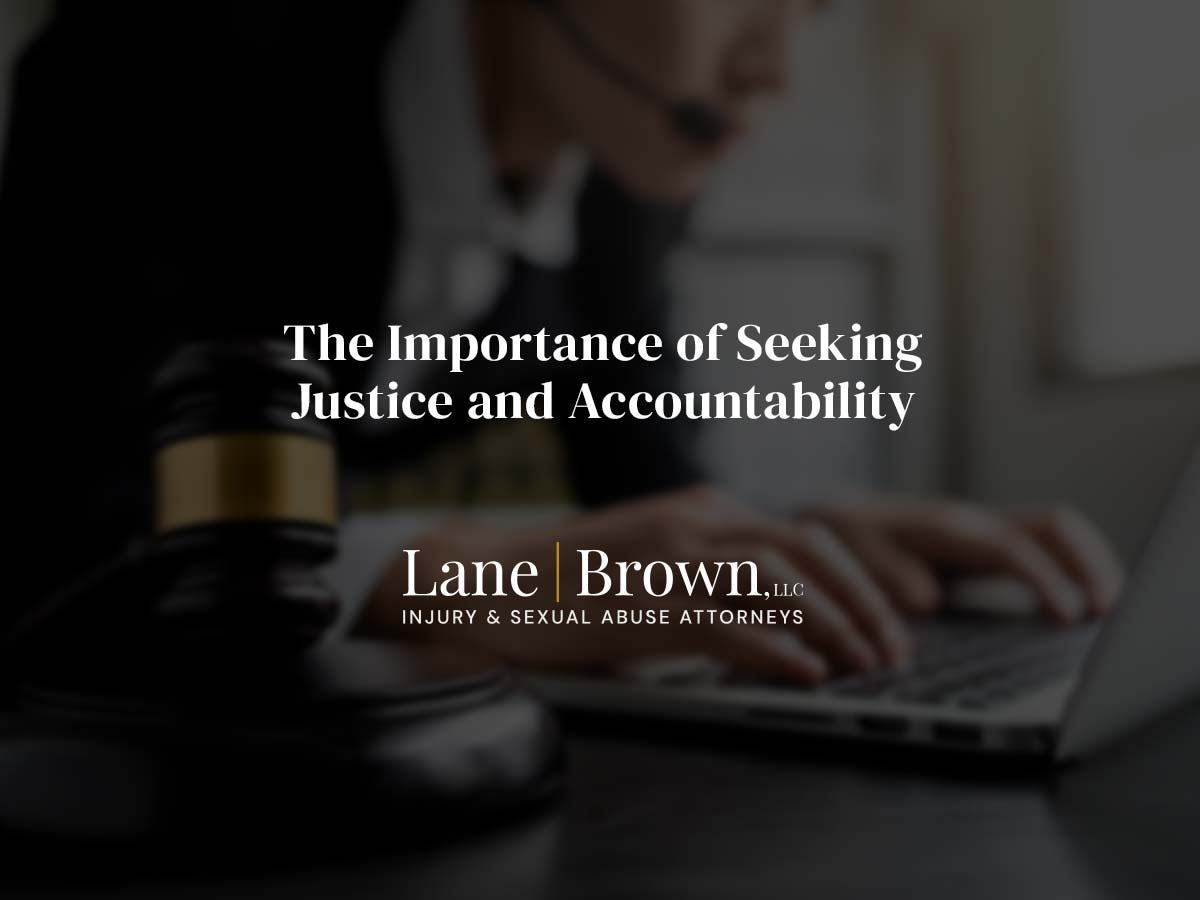You may be entitled to compensation if you or a loved one have suffered injuries in Waukegan, IL, due to another party’s negligence or reckless behavior. Your injury doesn’t impact you alone – it affects the lives of your family members, dependents, and other members of your community.
It is vital to hold the responsible party accountable for their actions. Doing so will get you the compensation you deserve and hopefully prevent the negligent party from similarly hurting others.
Types of Personal Injury in Waukegan, IL
Personal injury claims can include any incident caused by negligence that damages a person’s body, property, or emotional well-being. Below are some of the most common types of personal injury cases in Waukegan, IL, but it is no complete list.
Medical Malpractice
Medical malpractice can include any incident in which the negligence of a healthcare professional leads to injury or death. If you return home from the care of a medical professional and find yourself worse for wear, you may have a personal injury case.
Medical malpractice encompasses a broad spectrum of incidents, including but not limited to:
- Surgical errors, such as leaving a sponge inside a patient’s body or nicking an artery due to the carelessness or intoxication of the surgeon.
- Birth injuries, including fractures due to improper forceps manipulation and infection from incorrect sterilization techniques.
- Misdiagnosis can result in improper or total lack of treatment and the worsening of your medical condition(s).
- Prescription errors
- Failure to diagnose
If you went to a medical professional seeking assistance and found yourself worse for wear due to the negligence of your doctor, nurse, home health aid, or other medical professional, you may qualify for a personal injury claim. Our qualified attorneys at Lane Brown, LLC can help you understand the nuance of your situation and the best way to move forward.
Car Accidents
Car accidents are an unfortunate reality of sharing the road with other people. Most often caused by distraction, inebriated driving, or simply ignoring driving laws, any car accident that results from someone else’s negligence may qualify as a personal injury case.
If you suffered a car accident due to someone else’s reckless or careless behavior, you may be entitled to compensation for medical bills, vehicle repairs, lost wages, pain and suffering, and even punitive damages, depending on the circumstance.
The most crucial part of determining your eligibility for a personal injury claim after a car accident is being able to prove liability. If possible, following your accident, be sure to seek medical attention as soon as possible, even if you feel all right. Detailed, date-stamped medical records can be significant evidence for your case.
Other evidence you can gather includes photographs of damages (to yourself, vehicle, or property) and of the scene of the incident. Additionally, it is a good idea to submit a police report just to have further documentation of the event.
Lane Brown, LLC attorneys can help you understand if you have a case and walk you through the steps you need to take to get the compensation you deserve.
Sexual Abuse and Assault
Sexual abuse and assault encompass a broad range of harmful behaviors. Despite efforts from survivors and advocates over the years, it is still challenging for most people to speak openly about their experiences. This can make it difficult to determine if filing a personal injury claim can be worth sharing your story, which is often quite painful.
Perpetrators of sexual abuse and assault can be anyone, including people who are meant to provide care and support. This may include medical professionals, mental health therapists, parents or guardians, religious leaders, bosses, politicians, coworkers, and partners. Unfortunately, people in positions of power or closeness are likelier to prey on others.
Sexual abuse and assault can manifest in any of the following forms but are not limited to the list below:
- Soliciting minors over the internet
- Sexual contact with minors who cannot consent
- Incest
- Rape, including marital rape
- Forced exposure to pornography
- Sharing someone’s sensitive photos without their consent
- Sexual harassment
- Unwanted, inappropriate touching
- Exposure of one’s private parts to another person without consent
- Stalking
If you are uncertain whether your experience falls under sexual abuse or assault, it is in your best interest to seek guidance from a lawyer who can assess your situation and help you determine the best path forward for you. Lane Brown, LLC offers free.
Premises Liability
Premises liability lawsuits also fall under the category of personal injury. Premises liability is the duty that owners of residential and commercial properties have to keep their properties in reasonably safe conditions and adequately warn any visitors of known unsafe conditions.
Premises liability law is not relevant when it comes to trespassing.
If you have suffered an injury on someone else’s property due to unsafe conditions that you were not made aware of beforehand, you may have a personal injury case.
Perhaps you suffered a slip-and-fall due to a missing or broken railing on the stairwell at an apartment you are renting. Not only does this violate building codes, it violates the Americans with Disabilities Act. Due to your landlord’s negligence, you are now injured.
Alternatively, perhaps you were visiting a client at their home, and their loose dog raced down the driveway to meet you, unleashed and unmuzzled. Excitedly, the animal knocks you to the ground and catches your ankle in its mouth.
Whether or not the dog meant to harm you, you have now suffered broken vertebrae from being knocked to the ground and puncture wounds from the animal’s teeth on your ankle. All of this falls under the fault of the dog’s owner, who failed to secure the animal properly despite knowing that you would be arriving to do some work for them.
If you were injured on someone else’s property, be it commercial or residential, due to the negligence of the property’s owner, you may consider filing a personal injury claim.
What Kind of Injuries Qualify for a Personal Injury Claim?
You qualify to pursue damages if your injury resulted from someone else’s negligence. Here are a handful of serious injuries that are often involved in Waukegan, IL personal injury cases, but it is far from an exhaustive list.
- Traumatic brain injuries (TBI)
- Spinal injuries
- Head injuries
- Knee injuries
- Paralysis
- Chemical, electrical, or other burns
- Organ damage
- Organ failure
- Birth injuries
- Broken bones
- Dismemberment or amputation
- Disfigurement
- Wrongful death
The individual circumstances of your personal injury claim can shape every aspect of your case, including the resultant injuries. No complete list of injuries is exclusively eligible for a personal injury claim. However,.it is safe to say that if someone else’s negligent behavior caused your injuries, you likely qualify for a personal injury claim.
Liability and Negligence in Waukegan, IL
So, how exactly do you determine who is liable in your personal injury claim? In legalese, “liability” simply means accountability, usually for an injury or an accident.
Negligence is an individual’s failure to uphold the standard of reasonable behavior expected of an average, rational person.
Types of Negligence
There are three primary categories of negligence: gross, comparative, and vicarious liability.
Gross negligence represents the most severe form. Gross negligence involves an extreme lack of care or a significant deviation from the conduct expected of a prudent individual in a given situation.
Examples of gross negligence include:
- Speeding through areas with heavy pedestrian traffic, such as a busy mall parking lot
- Prescribing medication that a patient is recorded as being allergic to
- Neglecting to provide food, water, and medication to nursing home residents
Comparative negligence arises when the fault is distributed amongst multiple parties. In such cases, the percentage of fault becomes vital to the case outcome. For example, a person found to be 20% at fault for a car accident will face less severe consequences than the party found to be 80% at fault.
Vicarious liability is more intricate than gross or comparative negligence and can be challenging. It involves multiple parties – companies and their employees, parents and children. For example, if a middle school child vandalizes a brick building, their parents will be held vicariously liable, as the child is a dependent.
Establishing Negligence
Establishing negligence involves demonstrating the four critical components of negligence: duty of care, breach of duty of care, causation, and damages. These elements must be proven present for the case to be viable.
Duty of care pertains to individuals’ obligation to exercise reasonable caution in any given situation to ensure their safety and the safety of others. For instance, adhering to traffic regulations and speed limits while driving would be considered exercising reasonable caution.
Bread of duty occurs when an individual fails to exercise prudent care. For example, ignoring a red light deliberately poses risks to oneself and others and constitutes a breach of duty.
Causation refers to the actual harm resulting from the breach of duty of care. In the above scenario, running a red light increases the likelihood of getting into an accident and causing damage. If a driver obeying the traffic light turned on green while the negligent driver ran the red light, they could quickly get into a collision.
Damages is the word used to describe the repercussions of negligent actions. In the example we’ve been using, damages may include vehicle repair costs, medical expenses, and lost wages for the injured party.
Evidence of Liability
Building a case requires gathering compelling evidence. Obtaining a preponderance of evidence – legalese for “a sufficient amount to prove your case” – is crucial.
Evidence in a personal injury claim can include photographs, witness testimonies, police reports, expert opinions, and medical records. While individuals may gather specific evidence themselves, legal assistance is invaluable when effectively acquiring, organizing, and presenting the proof of your Illinois personal injury case.
Attorneys are a great resource when it comes to acquiring evidence. An experienced attorney can make short work of corralling necessary evidence and gathering witnesses from various applicable fields – such as medicine, engineering, economics, manufacturing, and more – to testify. Expert testimony bolsters personal injury cases tremendously.
Calculating Illinois’s Modified Comparative Negligence
Illinois has adopted modified comparative negligence as the standard for recovering damages. Under modified comparative negligence, an injured party may seek damages only if they are less than 50% at fault for the injury or damages. However, the recovered amount may be reduced proportionally based on the degree of fault assigned to the injured party.
For example, if you are involved in a car accident and the otriver is found to be 80% at fault, you may still collect damages even though you share a percentage of the blame. You can seek damages if you are less than 50% at fault. It is important to note that the insurance company of the person bearing the brunt of the blame may only pay that percentage of damages to you – in this case, 80%/
Compensation for Your Illinois Personal Injury Claim
If you have been seriously injured in Illinois due to someone else’s negligence, you have likely also suffered a sudden financial burden. You have medical expenses from your accident, which can be quite a daunting financial obstacle on their own. You have likely suffered other financial losses as well.
Without compensation, it can seem impossible to dig yourself out of the sudden debt hole you’ve found yourself in. Aside from medical bills and payments to repair any personal property that may have been damaged, you most likely have had to take time off work unexpectedly to recover, meaning you are also losing your wages indefinitely.
Your personal injury case may qualify for three types of damages: economic, non-economic, and punitive damages.
Economic Damages
Economic damages encompass any losses you’ve suffered from your accident with a direct price tag attached. If the loss came with a receipt, bill, invoice, or other payment record, it is most likely economic damage.
Common examples of economic damages include:
- Medical expenses, including bills, co-pays, and prescription costs
- Lost wages
- Caregiving costs if you are unable to care for yourself, your child, or your pet(s) during your recovery
- Property damage
Non-Economic Damages
Non-economic damages are much less straightforward to calculate because there is no direct financial correlation.
Non-economic damages encompass more ambiguous ideas, such as:
- Pain and suffering
- Emotional turmoil
- Loss of consortium
- Loss of enjoyment of life
If you find yourself suffering traumatic flashbacks of your accident, or the aftermath is affecting your ability to be close to your family, you can sue for non-economic damages.
Punitive Damages
Punitive damages are pursued in cases involving extreme recklessness or intent to harm by the negligent party. Not all personal cases qualify for punitive damages. Punitive damages are awarded solely to punish the guilty party instead of compensating the injured party.
Most often, punitive damages are sought for cases involving DUI-related motor accidents, assault and battery, sexual assault, wrongful termination, or intentional infliction of emotional suffering.
Obtaining punitive damages is often more complex, requiring precise, indisputable evidence of fraud, malice, or oppression. Consult an attorney before pursuing punitive damages to ensure that you have sufficient evidence.
FAQ
Below is a list of frequently asked questions about Waukegan, Illinois Personal Injury Claims. This list is far from exhaustive, so please contact us any time to schedule a free consultation with one of our experienced, empathetic, and reliable attorneys!
What is the statute of limitations for personal injury cases in Waukegan, Illinois?
The statute of limitations for a personal injury case in Illinois is two years. To file a lawsuit successfully, you must be sure to do so within two years of your injuries. Generally speaking, the metaphorical clock starts on the date the injury occurs, though there are some extenuating circumstances that your attorney can explain.
Regardless of how long you have to file your lawsuit, it is wisest to file as soon as possible. This ensures that witness testimony is as sharp as possible and minimizes the chances that the defense will try to claim that your injuries were unrelated to the incident.
Additionally, gathering evidence and documentation is much easier the sooner you do it.
Can I avoid going to court over my personal injury case?
Generally, most people prefer to avoid the courtroom if they are able. Luckily for those people, many personal injury cases can be settled out of court. Your attorney can help negotiate with the negligent party’s legal representation and with any involved insurance companies.
How long will it take for my case to be resolved?
It is different for every case, as the details of each personal injury case heavily affect the timeline and outcome. Some cases are relatively quick – resolving in a few short months – while others can drag on for a year or longer.
Some factors can be used to estimate how long your case will take to resolve, such as the extent of your injuries, how much time it takes you to recover, and the rough calculation of your claim’s value. The easiest way to get an accurate estimate is to contact a Lane Brown, LLC attorney and get a free consultation.
What if I am too poor to afford a lawyer?
Luckily, Lane Brown, LLC works on contingency fees – you will not be charged unless we win, and the payment for your attorney will come directly from your settlement. This means you will not owe any upfront costs, and your legal team will be all the more motivated to win your personal injury case!
Should I answer calls from the insurance company?
Engaging with your insurance company is only possible if you have spoken to an attorney. Unfortunately, your insurance company is not there to help you. Often, after a personal injury claim is filed, insurance companies will reach out to offer you a settlement significantly beneath your claim’s actual value.
We strongly recommend against accepting any settlement offers from the insurance company, especially if you are still undergoing medical treatment for your injuries. The unpleasant reality is that an insurance agent’s goal is to close your case as quickly as possible while offering you the least amount of money they can get away with.
Allowing your attorney to handle communications with any involved insurance companies is best. This will save you much stress and ensure that you are not taken advantage of by insurance agents who expect you not to know any better.
Can I file a personal injury claim if I was injured at work?
Yes! You may even be entitled to workers’ compensation benefits, other forms of compensation, and damages from your personal injury claim if you file a lawsuit following an injury at work.
Contact a Waukegan, IL Personal Injury Attorney
If you or someone you love has suffered because of someone else’s reckless, irresponsible actions, you don’t have to let that negligent behavior slide. You deserve to be fairly compensated for your medical expenses and any other losses you may have sustained.
A qualified, empathetic, and experienced attorney at Lane Brown, LLC can help you understand your legal options. Please call us whenever you’re ready at 312-332-1400, or schedule a free consultation online by filling out this form. Our helpful attorneys look forward to hearing from you!
